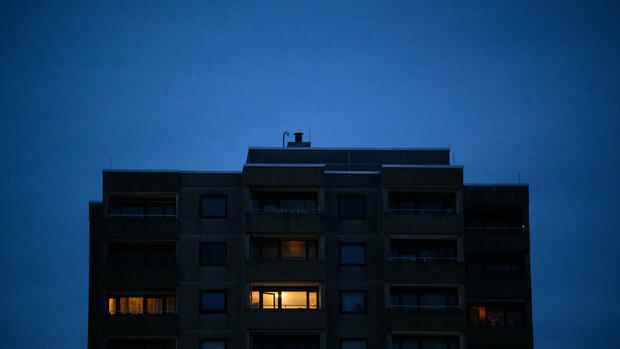While some improvements support those on very low incomes, measures for the middle class are lacking.
(Photo: dpa)
Germany is facing the greatest economic upheaval of the post-war period. With an inflation rate that is likely to exceed the ten percent threshold in the coming months, a “winter recession” is imminent, as the Ifo Institute estimates. In view of this, one should not only expect a “You’ll never walk alone” from the government, but rather a “Whatever it takes”.
But there is little sign of this in the agreed relief package. A significant part is attributable to the reduction of the “cold progression” in income tax. Creeping tax increases are referred to as cold progression: Due to the rising tax rate, citizens have to pay more to the tax authorities even if their salary increase only compensates for inflation.
However, this is not a relief, but rather to avoid additional burdens on taxpayers: with wage increases, which at best secure purchasing power, the tax burden would otherwise have increased in 2023.
The relief effect of the reduction in VAT on gas is also questionable. If the price of gas doubles, the corresponding tax revenue for the Treasury also doubles. If he gives some of that back to the citizens, he only alleviates their additional burden.
Top jobs of the day
Find the best jobs now and
be notified by email.
So while improvements in citizenship and housing benefits support very low-income households, measures for the middle class are lacking.
Lack of relief for the middle class
Depending on the energy supplier, higher electricity and gas prices can result in annual additional costs of around 1000 euros for single people, and for a family it can even be 3000 euros. Apart from the energy price flat rate of 300 euros, the children’s bonus of 100 euros, minor tax breaks and the abolition of the surcharge under the Renewable Energy Sources Act, these households have not received any noticeable relief so far.
>> Read here: How the middle class and recipients benefit from Hartz IV
So there is a lot to be said for another energy price flat rate, which will be paid out this year. Since it has to be taxed, low-income earners are more relieved. Fiscally, a payment this year would not result in a conflict with the debt brake, as this is not due to take effect again until 2023.
Relief for companies is also urgently needed. Extending the loss carryback from two to three years could be helpful. In the case of a loss carry-back, the loss is offset against the previous year’s profit.
Losses could thus be offset against profits from the pre-Corona period. So that larger companies can also benefit from this, the upper limit of ten million euros for individual assessments and 20 million euros for joint assessments should be abolished. Because if the state has an unlimited share in profits, it should also have an unlimited share in losses.
Politicians cannot comprehensively protect companies and households from the energy price shock. But it should at least cushion it so as not to endanger economic and social stability. While higher private debts can lead to insolvencies, temporarily higher deficits are not a problem for the German state.
More: “We are going into a winter recession” – Ifo Institute expects a shrinking economy and rising inflation
